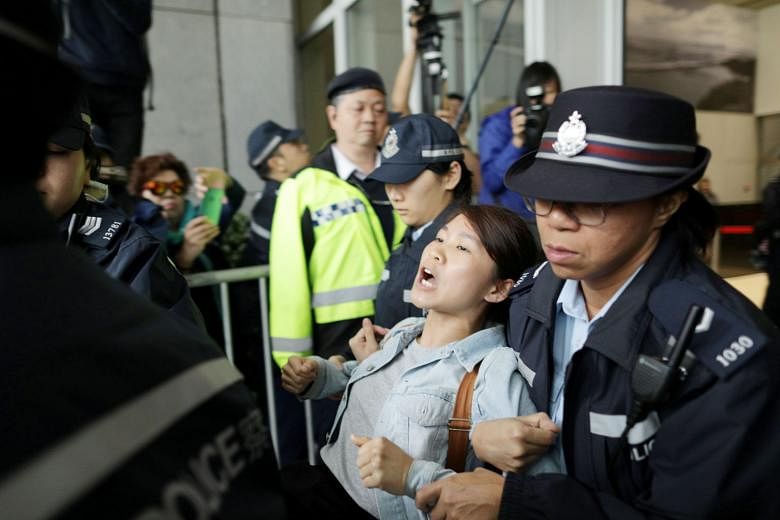The Hong Kong government has pulled back on proposed amendments to the city's extradition law by dropping a number of white-collar offences. The move came after the business community lobbied against their inclusion.
Nine offences, mostly economic crimes - such as those related to stock trading, intellectual property rights, bankruptcy, access to a computer with dishonest intent, and tax evasion - will be excluded from the Bill, which will be put before the Legislative Council on Wednesday next week.
Secretary for Security John Lee, at a media briefing on Tuesday, said he made the decision after discussions with the Department of Justice on which offences should be left out.
Under the new legislation, a suspect or fugitive can be extradited if the offence carries a Hong Kong penalty of at least three years' jail, Mr Lee said. This is a departure from the one year stated previously.
When Hong Kong leader Carrie Lam's administration first outlined the legal amendments last month, it said any future extraditions to mainland China, Macau and Taiwan would be restricted to the 46 existing offences in the city's Fugitive Offenders Ordinance.
These offences range from common criminal offences to serious crimes such as rape, kidnapping and murder, as well as corporate offences including fraud, bribery, corruption and money-laundering.
Mr Lee said while Hong Kong currently has extradition agreements with 20 countries, "not all 46 offences are included" in them.
Mrs Lam on Tuesday said the amendments will allow the government to close existing loopholes so that it can work with other jurisdictions, and prevent the city from becoming a safe haven for criminals.
Referring to a recent case and speaking in Cantonese, she said: "Why are we doing this? Why are we doing this now? It's driven by our empathy."
In a recent homicide case, the Hong Kong authorities were unable to extradite to Taiwan a Hong Kong resident suspected of killing his girlfriend.
Last month, the Security Bureau first unveiled the contentious plan to allow for the transfer of suspects on a case-by-case basis to any jurisdiction that Hong Kong does not have an extradition treaty with.
But local and foreign business chambers, including the Hong Kong General Chamber of Commerce and American Chamber of Commerce, as well as pro-establishment lawmakers flexed their muscles, calling on the government to make exemptions.
There were fears that corporate executives could find themselves handed over to the mainland for breaching Chinese laws unknowingly under the original proposed changes, as there are vast differences in the laws across the border.
Pro-democracy groups are also against the original plan as supporters are afraid that Beijing might demand the surrender of individuals wanted for political reasons.
Previously, the Hong Kong Bar Association (HKBA) said the proposed move could undermine Hong Kong's reputation as a free and safe city with rule of law. It rejected the government's argument that there is a "loophole" in the law as Hong Kong has not had an extradition agreement with the mainland since the handover in 1997.
Yesterday, HKBA said the government's latest approach does not address concerns.
"It is not apparent why a distinction has been drawn for those nine offences and not the others. The concerns logically would apply to all offences, and not just some. The curtailed approach only highlights the fundamental unease with the proposals, which led to such an approach in the first place," it said.
Meanwhile, the American Chamber of Commerce declined to comment while the Law Society of Hong Kong said "our specialist committee will review the proposals and we are not in a position to comment at this stage".
But the pro-establishment Business and Professionals Alliance reportedly said the changes have eased the concerns of the business sector.
A lawmaker from the alliance, Mr Jeffrey Lam, also rejected suggestions that the government is biased towards the commercial sector.


